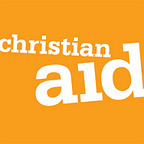Improving skills and competencies to prevent disease outbreaks
As the Preparedness and Early response to Public Health Emergencies (PHEP) project draws to a close, Paula Plaza, Communications Advisor reflects on the value of training for preventing disease outbreaks.
The PHEP project, funded by UK aid through the DEPP/START Network, was set up to better prepare and prevent disease outbreaks in Gambella, Ethiopia.
To achieve this, a crucial component involved training key health staff so they can better identify symptoms, diagnose and report illness in order to prepare and respond to outbreaks.
Below we introduce some of the people who were trained by the project.
The lab technician
Shibabaw Abere is a lab technician at the Regional Laboratory in Gambella, he is one of the 31 laboratory personnel who were trained by the project. He is using the new acquired knowledge to train others and to check the quality of the sample analyses done by other labs in the region.
The project has improved the capacity of the regional laboratory.
‘Before the project, all samples were sent to the capital, Addis Ababa to be analysed, this was a costly and lengthy process, seriously delaying the diagnosis and treatment of patients. The regional laboratory can now analyse and deliver test results faster, cheaper and closer to the communities.’
Agwak Ochan, Head of the Regional laboratory
Upskilling health workers
The project has trained 245 Health Extension Workers (HEW), they are government employees who are in regular contact with communities. They play a crucial role in providing preventive and basic curative services. The HEW give communities information on hygiene, advice on how to prevent diseases and refer patients to health facilities.
They were trained to report symptoms, logging cases of disease and doing initial testing for malaria. Through the training, they also learned about early warning, preparedness and disease surveillance.
The health volunteer
In addition to the HEW, 281 community volunteers have also received training. Chol Deng (below) is one of them and has been a volunteer for the last 2 years.
‘Before the project I didn’t know many things, now I have knowledge.
‘When I do a visit, if I get a sick person I tell them to go to the health centre to get treatment, so I feel I help the community in this way.’
Chol Deng, health volunteer
Weather to anticipate disease
The earlier health staff know about seasonal weather extremes that can lead to disease outbreaks, the earlier they can respond, bringing in insecticide to kill mosquitoes or stockpiling vaccines.
For this reason, the project provided new weather stations, which give vital information on weather conditions and with this information diseases can be predicted.
Better seasonal forecasts and teaching people how to use them are important steps in the fight against disease outbreaks, particularly for malaria -where prevalence is high in Gambella.
The Rapid Response members
Okello Ager, one of the members of the Rapid Response Team
‘Before we received the training we weren’t getting information on the weather, but now we know at what temperature and under what conditions the malaria mosquito develops.’
Okello Ager, lead for the Rapid Response Team
